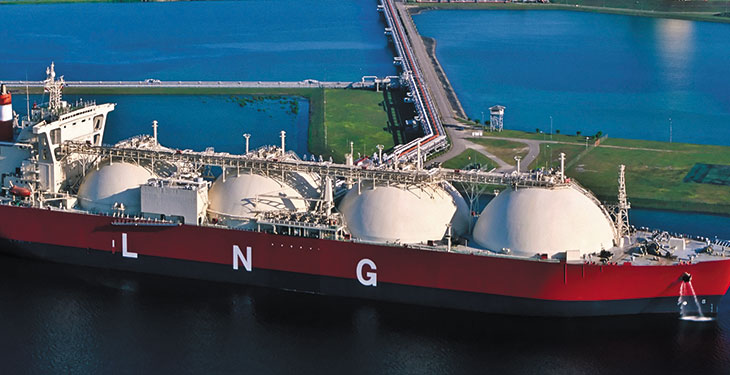The current geopolitics of energy in the CEE region displays a spectacular clash of three or even four rival grand narratives, as a local reflection of a multipolar world. The Energy Union (EU), the 3 Seas Initiative (US), the Greater Powerness (Russia), and the One Belt, One Road Initiative (China). In order for decisions to be made, understanding these grand narratives is a critical prerequisite, not only for Romania, but for all states caught in between. We spoke with HE Mr. Richard L. Morningstar, the Founding Chairman of the Global Energy Center at the Atlantic Council, about this complex regional context, shortly before the 3 Seas Initiative Summit in Bucharest. Richard L. Morningstar served as the US Ambassador to the Republic of Azerbaijan from July 2012 to August 2014. Prior to this appointment, he was the Secretary of State’s Special Envoy for Eurasian Energy. He also served as Ambassador to the European Union from June 1999 to September 2001.
The US 3 Seas Initiative seems to get more traction these days, with more debates and many public statements in this regard. What does the 3 Seas Initiative mean for the energy industry in the Central and Eastern Europe region, and for the EU-US cooperation at large?

To accomplish the 3 Seas Initiative, it is important for the countries in the region to cooperate and develop a joint strategy. This will also require cooperation with Brussels, politically and from the standpoint of funding. We are looking forward to the 3 Seas Initiative Summit in Bucharest this September, and hopefully that summit will produce concrete achievements as to what projects will move forward.
What kind of achievement do you have in mind?
It is important that more than just words come out of this summit in Bucharest. There should be discussion and agreement on specific projects and how to move forward on those projects.
Do you consider that the 3 Seas Initiative is a priority on the agenda of President Donald Trump? Why it should be?
This initiative has received a lot of attention from the US administration, from Secretary of Energy Rick Perry, and from the whole Department of Energy, who take this initiative very seriously and are working to maximize its success.
The Administration should be interested in moving forward this initiative for a couple of reasons. First of all, the countries in CEE are very important for the US. Since the fall of the Iron Curtain, the countries in the CEE region have always been strong allies and partners of the US. At the same time, the US government – both the administration and the Congress – is committed to the success of the CEE countries. The 3 Seas Initiative will also help to diversify energy supplies within CEE, and create alternatives to gas from Russia as a sole supplier.
For the EU Eastern countries, both Brussels and Washington are strong partners and value originators. Are there any reasons to believe that the 3 Seas Initiative is, in any way, at odds with the EU’s Energy Union project?
I believe that the 3 Seas Initiative is totally consistent with the EU’s Energy Union. The 3 Seas Initiative will create interconnections between countries and will help to diversify the energy supply within Europe and provide for greater energy security within the CEE region and all of Europe.
Don’t you believe that maybe a more successful approach would be for the US to enter in a direct dialogue with Brussels on these issues for an alignment with the provision in the Energy Union?
The 3 Seas Initiative will definitely be on the agenda with Brussels. I am no longer in the US government, so I am not a party to the discussions. However, I hope that through constant contact between Washington and Brussels, and the work of the US-EU Energy Council that will be a key area of cooperation.
The Nord Stream 2 project divides European countries in two groups; one insists on the fact that the Russian Federation is and it was a reliable supplier of natural gas, all other divergent positions in brackets; while the second is manifestly more worried by their lack of leverage in bilateral negotiation with the Russian Federation. How important is the role that US might play in this respect?
The US has consistently opposed to the construction of Nord Stream 2 for a couple of reasons. First is the belief that it will increase dependence on Russia for gas supply to Europe. Second, from a geopolitical standpoint, Nord Stream 2 could have a very deleterious effect on transit through Ukraine. It would be a bad signal for Nord Stream 2 to move forward after Russia’s actions in Crimea and in Eastern Ukraine, as it would potentially deprive Ukraine of transit fees.
Both the Administration and Congress have voiced their opposition to Nord Stream 2. This has been consistent not just during the Trump administration, but during the Obama administration as well.
If Nord Stream 2 is built, the 3 Seas Initiative can be very helpful in mitigating the effect of Nord Stream 2, because it would create interconnections and access to alternative gas for the region, including LNG imports. The ability for LNG to come into CEE will also help keep prices down and make it more difficult for Russia to act as a monopolist with respect to the gas supply. So, yes, we are opposed to Nord Stream 2, but initiatives such as the 3 Seas Initiative and other actions within Europe could help mitigate the effect of Nord Stream 2.
Can we draw a comparison between the sanctions US recently imposed to Iran, with one of the effects being that a large EU company such as Total withdrew from projects in Iran, and the Nord Stream 2 situation? Would it be possible for the US to apply sanctions to Nord Stream 2?
The situations in Iran and Nord Stream 2 are not exactly parallel. There is a possibility that sanctions could be applied to Nord Stream 2, as there is legislation in Congress, which could require sanctions on Nord Stream 2. I cannot predict whether that legislation will pass. However, under existing legislation, the President has the option of sanctioning Nord Stream 2. It is very uncertain whether those sanctions will take place. The threat of sanctions, whether or not it happens, does create uncertainty which could cause concern for investors in the project. But it is difficult to say whether sanctions on Nord Stream 2 will be enacted.
LNG is an important element for the future energy cooperation between USA and the UE, as it is a significant trend at global level. Is it also a real opportunity for the Southern and Eastern part of Europe? You mentioned Croatia. What about Romania?
LNG should be a definite possibility for the CEE countries, including Romania. Hopefully, the Krk terminal project will be constructed. What the route will be from Croatia is a question mark. A possibility would be the LNG to come in to Greece, and then go into Bulgaria, on the Greece-Bulgaria pipeline, which would hopefully then expand to Romania.
If my understanding is correct, you say that LNG might be an opportunity for Romania, event without an LNG terminal being built at the Romanian Black Sea shore? Did I understand correctly?
Infrastructure will have to be built, and it will take some time, but I think that it could be a possibility. Hopefully, projects for gas on the Black Sea coast of Romania will also go forward, and we will see how that develops in the coming months.
For internal coherence and public support, major political decisions need the foundations of a comprehensive, yet simple story on where a community is, and where it is heading towards. Do you as possible an integration of the many rival grand narratives the major powers such as US, EU, Russia and China are putting on the table, from the perspective of countries in the Eastern Europe?
I think it is possible. The supply of gas from Russia will always be important for Europe, but the key is that there will be alternatives on a real competitive market. The 3 Seas Initiative can help to create that competitive market by allowing for alternative gas to come into CEE, which will force real competition between Russian gas supplies as well as other alternatives. That will keep prices for gas in CEE at reasonable rates.
With respect to the One Belt, One Road Initiative, we have to see. At this point it would be speculative to talk about what effect that will have in energy for CEE. There are other alternatives beyond LNG for CEE – the Southern Gas Corridor has been established, and hopefully gas through that will ultimately also come to CEE. I don’t think that there will be a formal integration of all these initiatives that you are talking about, but through a successful 3 Seas Initiative which is totally consistent with the European Energy Union, and the availability of alternative gas supply – that will protect CEE, even as Russian gas remains an important part of the energy mix.
